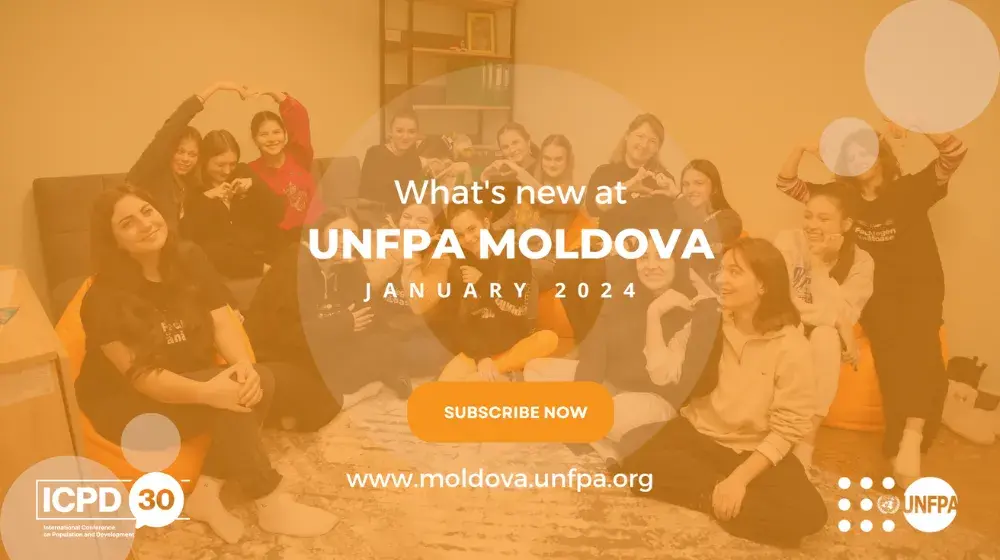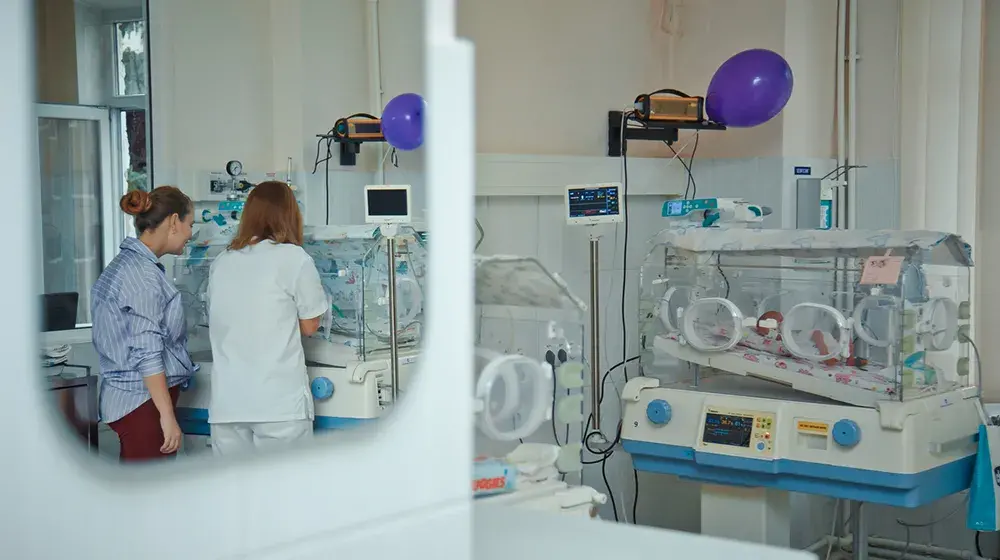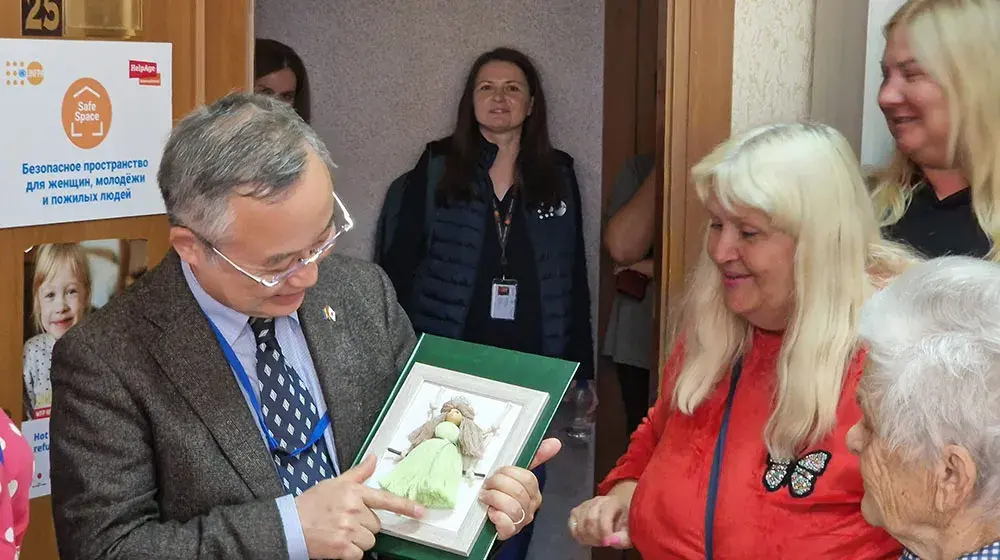“At night when the rockets fired, we were terrified. We hid under one bed. This convinced my mother that it was time to leave,” says Margo, who fled from the Odessa region with her mother, younger siblings, and her best friend Svetlana, who has a son. They are all now living temporarily at the MoldExpo Refugee Centre. They came to Moldova, Margo says, because it felt close to home. It was not a decision that her mother took lightly; they left their livestock – horses and cows – behind. “Our farm was our life,” she says wistfully.
Reimagining the future
Margo is 20 and a certified veterinarian. Before the war started she was contemplating a career change as a make-up artist, and is still pursuing this dream. She is a regular at the Orange Safe Space which UNFPA has equipped, staffed and runs on the second floor of the MoldExpo Centre. The space has been specifically designed to meet the unique needs of adolescent refugees, and provides life skills and resilience building sessions, mental health counseling, sexual and reproductive health referral and information, personal development, and connects young refugees with host communities.
“Teenagers and young people are usually confused, trying to figure out their life, setting goals,” says Margo. “Now, because of the war, it is difficult for adults to even cope, but teens have become even more insecure and unsure of what the future holds.”
Margo is continuing to train as a make-up artist online at the safe space, and in the afternoons joins the local creative youth collective that produces short films. She loves the atmosphere on set and says Moldovan youth have welcomed her and her Ukrainian peers with open arms.
Providing support and a glimmer of hope
UNFPA is working with the Government of Moldova and partners to support the estimated 100,000 refugees from Ukraine, including around 16,500 young people aged 10 to 25. Our priority is to ensure that the specific needs of women, girls, youth, and older people are at the centre of the humanitarian response. To date two Orange Safe Spaces have been established in the capital Chișinău and additional safe spaces for women, youth and older persons will be opened in regions across the country in the coming weeks. Some of the spaces will have a separate room for psychologists to support refugees with their mental health struggles as they deal with the trauma and stress of their lives being upended by the war.
Svetlina, Margo’s friend, also attends the Orange Safe Space at MoldExpo. She says it’s important for her mental health - and to give her the strength to keep moving forward, but it’s not easy at a time when the future looks uncertain and bleak.
“There is not a single moment when we do not hope that our president will announce that Ukrainian citizens can come back to their homes,” Svetlina says. “This hope makes it difficult for us to plan our life here and join the local community.”





